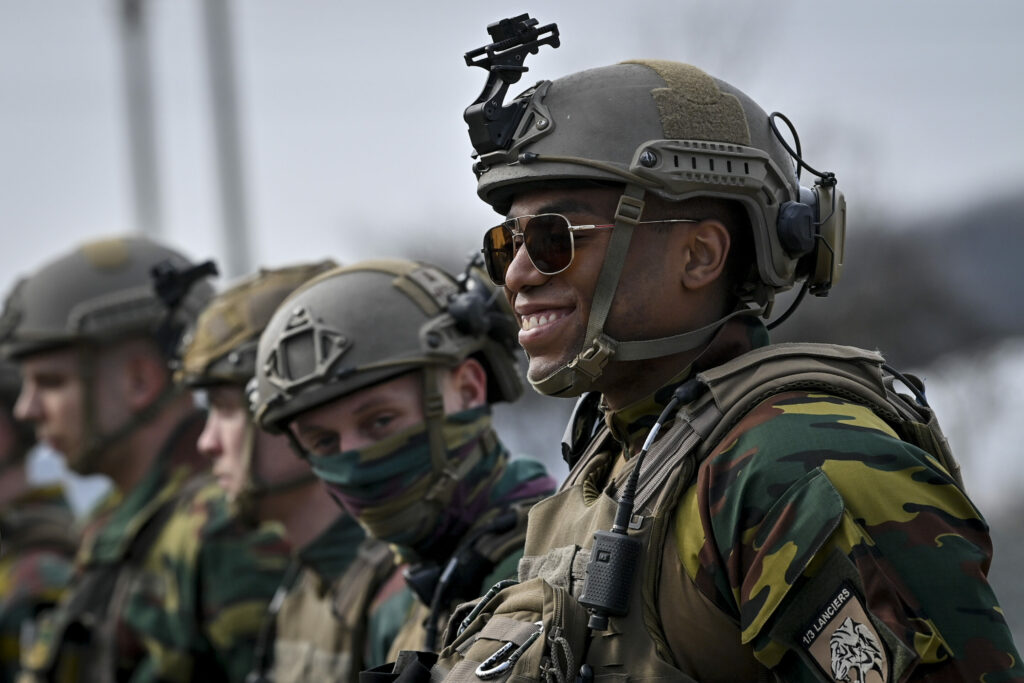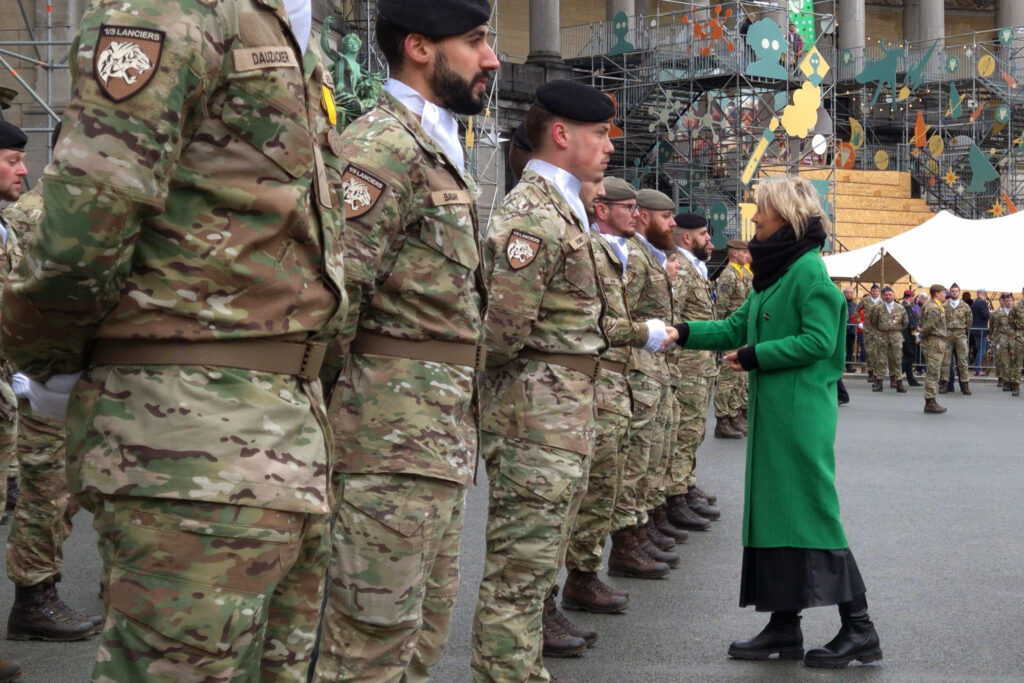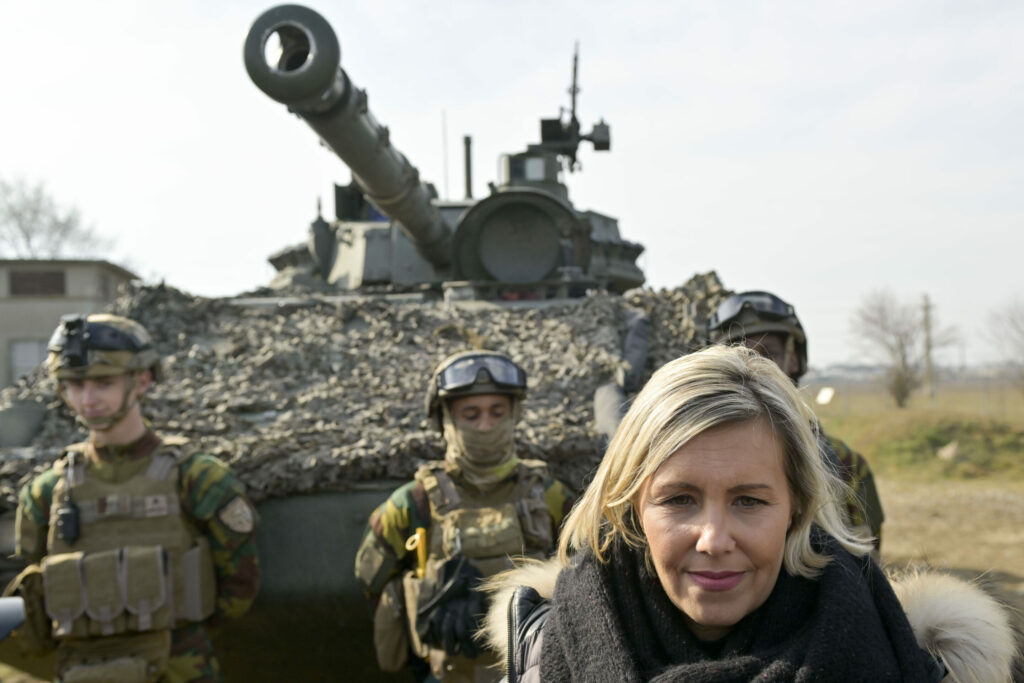With the threat of war with Russia seemingly looming over Europe and Belgium's historically low NATO spending, is the country ready to deal with the changing security situation?
Russia could be behind recent "suspicious" operations aimed at testing the robustness of the security of Belgian military sites, namely in Poelkapelle (West Flanders province), confirmed outgoing Federal Defence Minister Ludivine Dedonder (PS) on Friday.
The number of cases of reported "suspicious behaviour" around Belgian military sites was low until recently, but the number has soared in the last two years: 20 suspicious cases in 2023, and 26 in 2024 (as of 30 September). Before that, it was five cases in 2020, nine in 2021 and seven in 2022.
In the face of rising Russian intimidation, Nordic countries have released new advice informing the population how to survive war and Dutch banks last week told clients to keep cash at home due to geopolitical threats. But Belgium has so far held back from such precautions.
This is now changing as on Friday, the outgoing Federal Government presented its new military plan for 2025. Belgium's outgoing Defence Minister wants to boost the country's military presence abroad: between 650 and 1,400 military personnel will be deployed simultaneously – a further increase compared to last year.
"With this plan, we reaffirm our absolute priority: to protect our country while actively contributing to global security," she said.
Adopting a 'wartime mindset'
The 2025 operation plan also envisages an increase in operational military deployments (the active deployment of military units and assets) by around 20% and a three- to fourfold increase in NATO standby forces. "All this with the aim of being ready to defend our territory in the best possible way."
The announcement follows a grave speech by NATO's new Chief Mark Rutte on Thursday, in which he stressed that "we are not ready for what is coming our way in four to five years" and warned Europe that it is time to adopt "a wartime mindset."
Belgium, where NATO has its headquarters, is doing particularly badly on that front and is currently the second-lowest defence spender among members, this year assigning just 1.1% of its GDP to the sector.
US President-elect Donald Trump argued that Europe should pay more for its own defence after he declared that he would consider pulling the US from NATO if targets were not met. During his first presidency, Trump demanded more spending during the 2018 NATO summit, with leaders vowing to meet the 2% threshold.

Credit: Belga
While outgoing Belgian Prime Minister Alexander De Croo also committed to 2% GDP defence spending at the NATO summit in Madrid last year, this will now rest with the new government. Some US sources have even suggested the military alliance could move its headquarters out of Belgium if it does not improve its defence spending.
Now, Dedonder's plan seems to partly meet this demand to increase spending. The budget for military operations will be just over €119 million in 2025, which Dedonder said reflects Belgium's desire to "strengthen its contribution to global security while improving its operational capabilities."
"Overall, we are currently living in a time of war in Europe. This calls for extra vigilance, resilience and robustness. We need to protect our critical infrastructure and build a defence that can protect our citizens as well as our allies and partners," she said during her trip to Poland, where she recognised that peace in Europe is fragile. "This contributes to both the security of Belgians and international stability."
Hybrid warfare
Dedonder stressed that Belgium needs to better protect itself against hybrid warfare as it is often the victim of cyber attacks. "There is currently no direct conventional threat against our country, but hybrid warfare is the biggest threat. Belgium is an interesting target for enemy intelligence services."
This add itself to the number of "suspicious behaviours along the fence (taking photos, scouting out the military area, etc.)" of Belgian military sites.
"Damage to the fence" was also caused by individuals on 19 occasions in 2023 and already 15 occasions this year, whereas these were occasional incidents in the past. Finally, 11 individuals entered the site in 2024 (until the end of September), at least two to three times more than in previous years.

Credit: Belga
While no data was stolen, "it seems that these attempts are intended to get to know our infrastructure better and test our security systems," she said. "This highlights the need to better protect our critical infrastructure and increase our vigilance."
In 2025, Belgium will continue its commitment to the education and training of Ukrainian forces. Currently, more than 3,300 Ukrainian military personnel have already been trained by Belgium. This effort will be ramped up with training modules in fields as diverse as infantry, combat genius (specialised in working with explosives), medical care, naval operations and, of course, demining training.
"We are also actively pursuing the training of Ukrainian F-16 pilots this year in Portugal, where Belgium will play a leading role," Dedonder said.
In addition to its missions abroad, the Defence Ministry will continue to play "its vital role" in supporting the nation, particularly in natural disasters and evacuation operations.
'Risk culture'
As part of Belgium's wartime preparations, its National Crisis Centre on Monday morning announced that it will launch a comprehensive campaign next year to make the population more "resilient" in the face of emergencies.
The goal is to clarify how to seek shelter, evacuate, and develop a personal emergency plan. "It is important that we learn to create our own emergency plans during this time," explained outgoing Interior Minister Annelies Verlinden (CD&V). "We cannot rely on the government for everything."
"There is no need to panic, but we must lay the foundations for a 'risk culture' in our country," the Crisis Centre emphasised.

